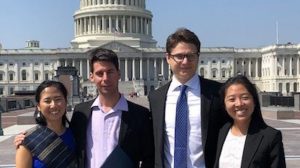
SSA advocates for earthquake science and seismology in Washington, DC. A new program offers student and early-career members the opportunity to gain exposure to the policy making process.
SSA’s Government Relations Policy Fellowship, established by the Board of Directors in February 2022, offers the opportunity to influence the policy processes that impact seismology. The fellowship combines the grant program that supports involvement in the Geoscience-Congressional Visits Day (Geo-CVD) with service on the Board’s Government Relations Committee, which meets virtually several times each year to identify legislative goals and issues, guiding SSA’s government relations work.
All Fellows are required to participate in the two-day Geo-CVD program and participate in GRC, which meets virtually approximately five times per year (usually one-hour), with one meeting during the Annual Meeting.
Apply Today!
About the Fellowship:
- The 2026 application deadline: 31 March.
- Fellowship period: June 2026-May 2027.
- Eligible applicants: Current SSA student and early-career members.
- Number of fellowships per year: up to two.
SSA will provide the Fellow(s):
- A stipend of up to $2,000 to cover actual travel and lodging expenses to participate in Geo-CVD in Washington, DC.
- Complimentary registration to the SSA Annual Meeting and a travel grant of $1,500.
Criteria for Consideration
- Current active membership in SSA
- U.S. citizenship and resident of the U.S. (dual citizenship with another country is acceptable)
- Student or early-career member of SSA
- Strong interest in learning about policy and an interest in being an advocate for earthquake science
- Strong verbal and written communication skills
- Availability and ability to participate in Geo-CVD ’26 (15-16 September 2026).
- Availability and ability to participate in virtual and in-person GRC meetings throughout the fellowship term (The GRC typically meets in person at the annual meeting, and virtually 4-5 times/year)
Required Materials from Applicants:
- Completed application form
- CV/Resume
- Candidate statement indicating their interest in participating in Geo-CVD (300 words maximum)
- An issue statement, describing a policy issue of interest to the applicant and why it is important to the future of earthquake science and/or SSA (300 words maximum)
- A letter of support from employer or advisor
Evaluation and Selection Process
The SSA Government Relations Committee will select the Fellows, considering a range of factors, including:
- Geographic representation across the US and territories
- Functional representation across the fields of seismology
- Diverse representation of the Society’s membership
Government Relations Policy Fellows
2025-26

Johanna Villagomez, a second-year Ph.D. student studying geophysics at the University of Houston, wants to use her research to help protect public safety and critical energy infrastructure. That research focuses on deploying seismic nodes along the Texas Gulf Coast to monitor fault activity and seismic hazards. Through the fellowship she hopes to strengthen the connection between science and policy.
“There is no seismic monitoring along the Texas Gulf Coast, yet this region is key for energy production, carbon storage and disaster resilience. By participating in Geo-CVD, I will learn how to communicate the urgency of seismic monitoring to policymakers.” – Johanna Villagomez
2024-25
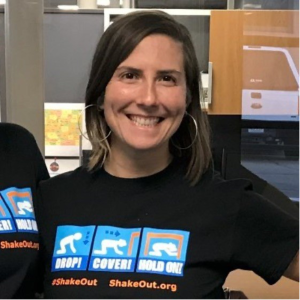
Kyren Bogolub, Ph.D is a network seismologist at the Nevada Seismology Lab, responsible for managing the NSL’s data products and analysts team. Bogolub has an interest in the intersection of policy, the expansion of earthquake early warning systems, and monitoring for regional seismic networks.
“I’d like to help increase and improve the quality of interactions between scientists, the public, and policy makers. This starts with learning more about policy makers, their interests, and their communication style.” – Kyren Bogolub
2023-24
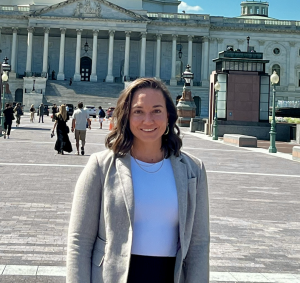
Rachel Willis, a Ph.D student in geophysics at the Colorado School of Mines, analyzes natural hazards using traditional seismic data and seismic data recorded by distributed acoustic sensing (DAS). Rachel is interested in bridging the communication gap between scientists and policymakers.
“Through collaboration between geoscientist and policymakers, we can implement evidence based strategies to promote health, resilience and sustainability of our people and planet.” – Rachel Willis
2022-23
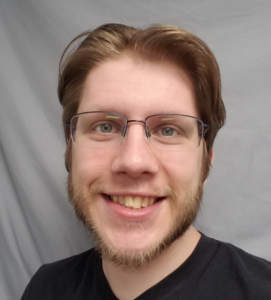
Alexander Fozkos,a graduate student at the University of Alaska Fairbanks, is interested in raising awareness of an early warning system that takes into account the unique tectonic environment of Alaska. Fozkos is committed to using better warning systems to support the communities most vulnerable to seismic activity.
“Earthquake early warning interacts directly with the public and is intrinsically a public policy issue.” – Alexander Fozkos
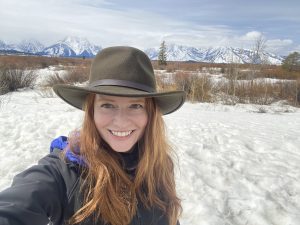
Passionate about communicating with policymakers, Heather Shaddox is a postdoctoral fellow at the Berkeley Seismology Lab focused on understanding how earthquakes impact communities and individuals. She is enthusiastic about the development of enhanced geothermal and carbon sequestration.
“I want to engage with policymakers and the community and be an advocate for seismology.” – Heather Shaddox
